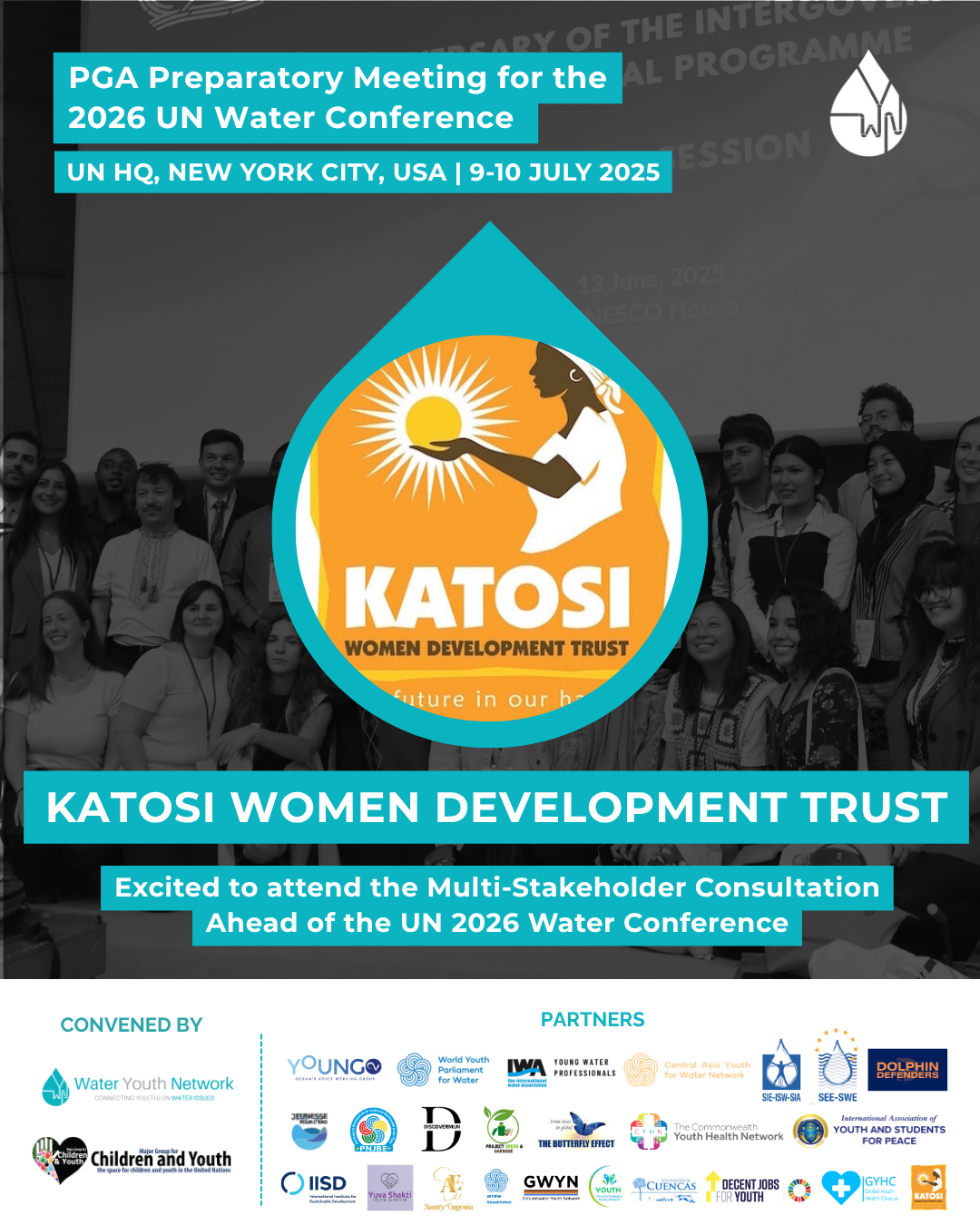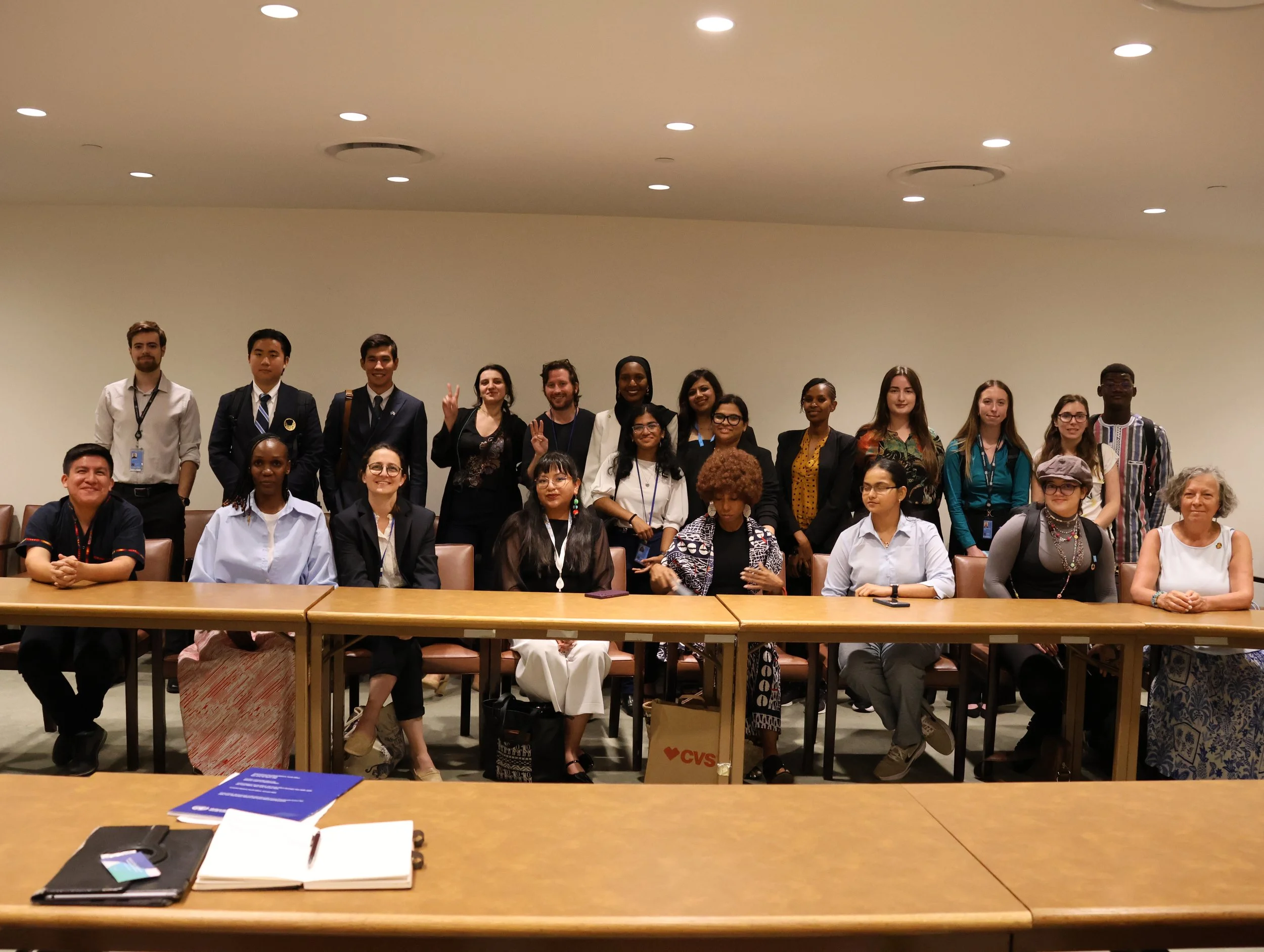Reclaiming the Narrative: KWDT at the UN Headquarters. A Voice for Rural Communities in Global Water Dialogues
On July 9, 2025, the President of the United Nations General Assembly convened a preparatory meeting to shape the themes of the 2026 UN Water Conference. KWDT, as part of the Butterfly Effect coalition, participated in these high-level deliberations to amplify and affirm the urgency of rights holder led water governance.
Our message was unequivocal: Fair involvement of rights holders must take precedence over tokenistic inclusivity. Participation without power is not participation.
The Youth Forum and stakeholder consultations brought to the forefront a long-standing reality for the Global South: water is not just a development issue; it is a survival issue. It is the pulse of all SDGs, enabling access to food, education, gender equality, climate resilience, and peace. Despite this, the global water agenda remains underfunded and disconnected from grassroots priorities. Youth from across the world called for meaningful engagement not just symbolic presence and demanded systems that enable genuine, equitable participation.
The meeting reinforced the centrality of water and sanitation as fundamental human rights. There was consensus that ethical and transformative governance must replace fragmented and siloed approaches. From the Global South’s youth emerged a vision grounded in lived realities calling for a shift from ambition to actionable political will.
Institutions such as IHE Delft and the International Water Management Institute (IWMI) presented opportunities for capacity building, grassroots partnerships, and community-led research. These efforts are essential in bridging systemic gaps, particularly in data availability, policy coherence, and localized water education.
For civil society organizations, these partnerships represent pathways to scale community-based water monitoring, youth-led watershed governance, and the integration of indigenous knowledge. Yet, the most persistent barrier remains political inertia, not a lack of innovation or intent. The sector must address the financing gap with precision through timely information, strategic investment, and institutional preparedness.
The Special Rapporteur on the Human Rights to Water and Sanitation, alongside the UN Special Envoy for Water, underscored the value of multi-stakeholder collaboration and mutual accountability. Global frameworks matter but it is the sustained, rights-based efforts on the ground that will ultimately drive impact.
Mechanisms such as those promoted by Sanitation and Water for All (SWA) are critical to tracking progress, holding duty-bearers accountable, and ensuring that promises made translate into outcomes delivered.
A Call to Action: From Rural Uganda to Global Platforms
Our engagement in New York reaffirmed KWDT’s commitment to amplifying community perspectives at the highest levels of dialogue. Though rural women and fisher communities may not occupy diplomatic seats, their stories, expertise, and resilience hold transformative power. As we prepare for the 2026 UN Water Conference, KWDT stands ready not just to advocate, but to act. The time for performative dialogue is over.








